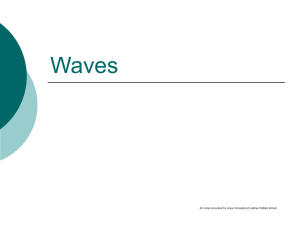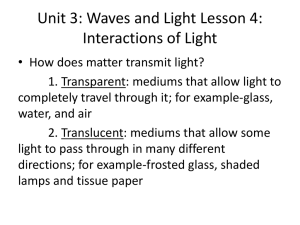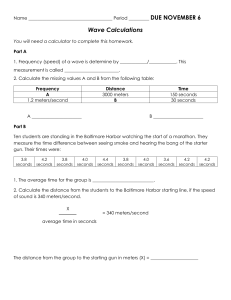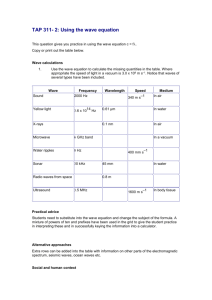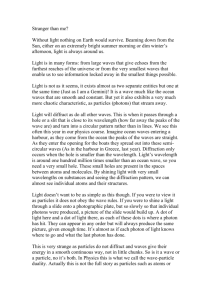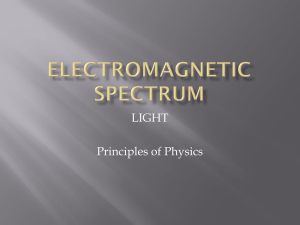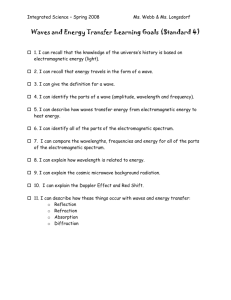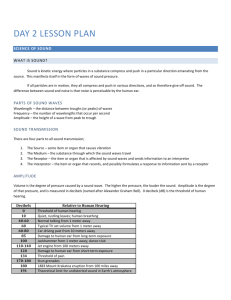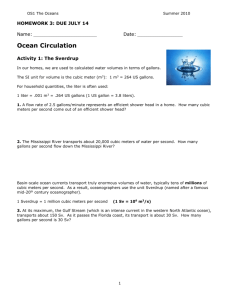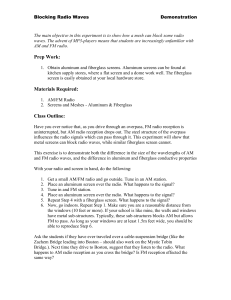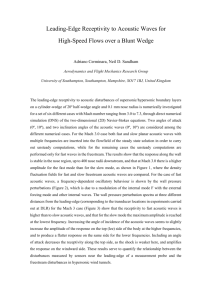Sound Waves Lab Report: Frequency, Amplitude, Wavelength
advertisement
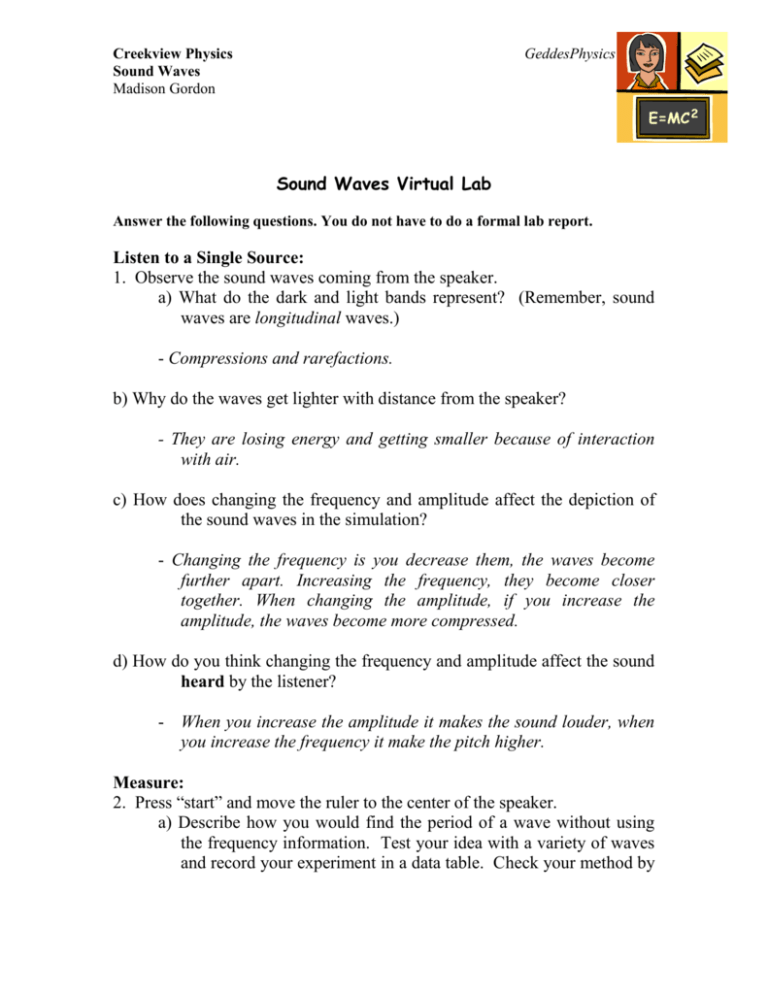
Creekview Physics Sound Waves Madison Gordon GeddesPhysics Sound Waves Virtual Lab Answer the following questions. You do not have to do a formal lab report. Listen to a Single Source: 1. Observe the sound waves coming from the speaker. a) What do the dark and light bands represent? (Remember, sound waves are longitudinal waves.) - Compressions and rarefactions. b) Why do the waves get lighter with distance from the speaker? - They are losing energy and getting smaller because of interaction with air. c) How does changing the frequency and amplitude affect the depiction of the sound waves in the simulation? - Changing the frequency is you decrease them, the waves become further apart. Increasing the frequency, they become closer together. When changing the amplitude, if you increase the amplitude, the waves become more compressed. d) How do you think changing the frequency and amplitude affect the sound heard by the listener? - When you increase the amplitude it makes the sound louder, when you increase the frequency it make the pitch higher. Measure: 2. Press “start” and move the ruler to the center of the speaker. a) Describe how you would find the period of a wave without using the frequency information. Test your idea with a variety of waves and record your experiment in a data table. Check your method by Creekview Physics Sound Waves Madison Gordon GeddesPhysics calculating the period using the frequency (T = 1/f). Show calculations. Here’s a data table for you to use: # of Waves: Frequency: Period: 4 0.0127 314.961 3.175x10^-3 3 0.0097 309.278 3.233x10^-3 2 0.0071 281.690 3.550x10^-3 5 0.0167 299.401 3.34x10^-3 b) Hit stop and reset, and measure the distance a wave travels in a certain amount of time. Make a data table and do at least 3 trials. Find the speed of sound using v = d/t. Distance: Time: Velocity: 4.6 meters. 0.0145 317.241 5 meters. 0.0167 299.401 2.5 meters. 0.0079 316.456 2.7 meters. 0.0085 317.647 c) Use the ruler to measure the wavelength of this sound wave. Check the speed calculated above using v = fλ. - Wavelength = 4.3 meters. Frequency = 328.244 Velocity = 1411.45
